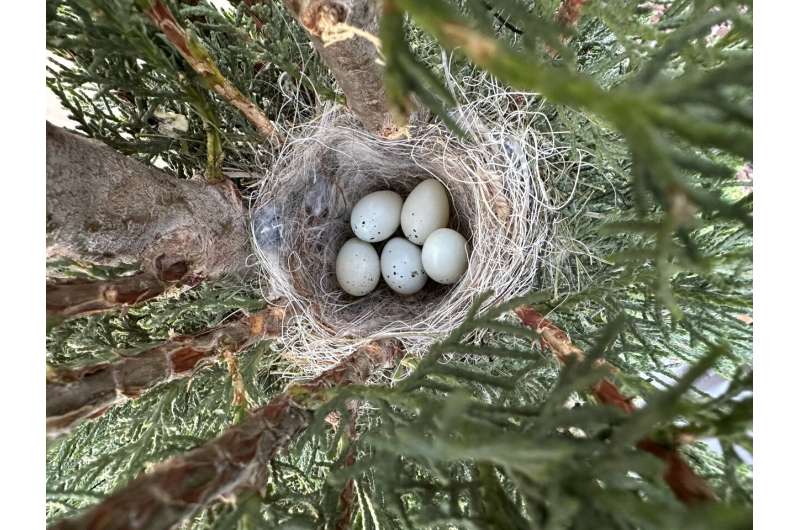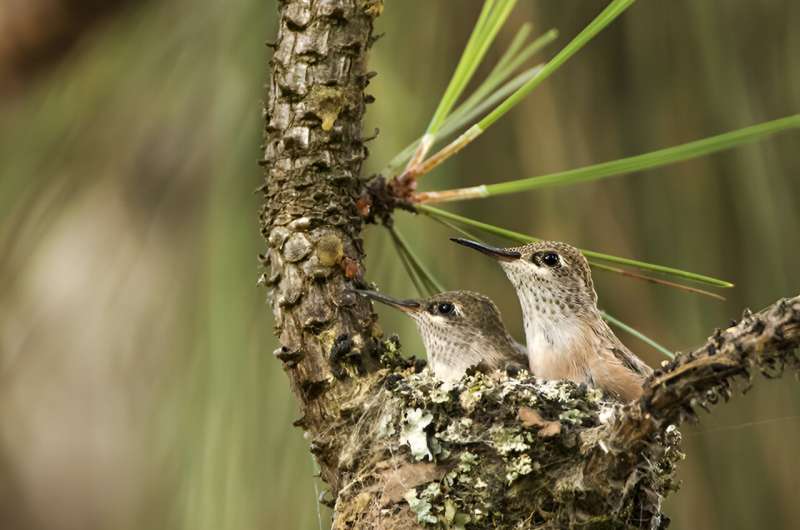This article has been reviewed according to Science X's editorial process and policies. Editors have highlighted the following attributes while ensuring the content's credibility:
fact-checked
trusted source
proofread
Early spring, earlier nesting birds

Did spring arrive early this year? Some people think so. Apparently, some birds do, too. The NestWatch project at the Cornell Lab of Ornithology documents when and where birds are nesting.
The evidence from recent years shows that birds are nesting weeks earlier than they used to and this spring may be no exception. As climate change causes seasons to shift and the world to get hotter, becoming a NestWatcher is an even more important part of the overall effort to understand its impact on birds.
"Researchers are using decades of NestWatch data to delve deeper into the effects of climate change," said NestWatch project leader Robyn Bailey. "With the information we get from participants we can better understand what nesting birds are dealing with now, what they may be facing years from now, and prepare strategies to help them cope with a more variable future."
Joining NestWatch is free, and it only takes about 15 minutes to learn how to participate, keeping the safety of the birds in mind. Simply find a bird's nest or monitor a nest box and begin recording details about the number of eggs, nestlings, and fledglings, along with key dates such as when the eggs hatch and when young leave the nest.

NestWatchers say they find the activity personally satisfying and an opportunity to learn so much more about birds. It adds up to a wealth of scientific information about breeding birds and how human activities are altering their lives.
"We especially need to understand how climate change may be impacting nesting success rates for songbirds," Bailey said. "A recent study done with NestWatch data found that earlier warm temperatures also increase the danger of sudden cold snaps and heat waves, both of which can lead to nest failures."
It may get hotter. The National Oceanic and Atmospheric Administration (NOAA) has been reporting month after month of record high temperatures in the continental U.S. They say this past winter was the hottest in their 130 years of record-keeping. NOAA warns there's a one-in-three chance temperatures will be even higher this summer or, at the very least, 2024 will be among the top five warmest years in human history.
The long-term data from NestWatch will paint a clearer picture of how birds are responding to climate change as well as other threats they face, including habitat destruction and invasive species.
Provided by Cornell University




















